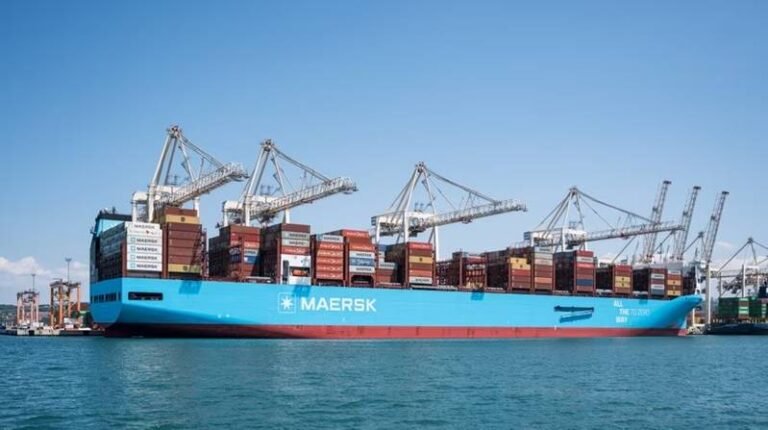Maersk Expects Growth Amidst Tariff Threats and Geopolitical Uncertainty
Maersk, a global leader in container shipping, recently announced its expectations to grow its business despite facing challenges such as declining profits and uncertainties surrounding U.S. President Donald Trump’s tariff threats. The company anticipates a 4% growth in global container shipping this year, positioning itself to capitalize on the expanding market.
Geopolitical developments, including Trump’s threats to impose tariffs on major U.S. trading partners and concerns over access to the Red Sea shipping route, are expected to impact Maersk’s revenues. However, CEO Vincent Clerc remains optimistic about the company’s ability to navigate through these challenges.
Clerc emphasized that while tariffs may create some uncertainty, the key driver of cargo volumes is consumer consumption. He pointed out that if tariffs lead to inflation and a decrease in consumer spending, it could impact Maersk’s business. Despite these potential hurdles, Maersk is focused on delivering strong performance and maintaining its position as a key player in the global shipping industry.
Forecast and Resilience
Maersk’s forecast for underlying EBITDA this year ranges between $6 billion and $9 billion, a decline from the $12.1 billion achieved last year. Analysts had predicted a figure of $7.4 billion, highlighting the uncertainties surrounding the company’s financial outlook. The situation in the Red Sea remains a critical factor in Maersk’s forecast range, as ongoing security concerns have forced vessels to take longer routes to avoid potential risks.
Despite these challenges, Maersk has demonstrated resilience in the face of adversity. The company’s quarterly earnings surpassed expectations, leading to a surge in its share price. This positive performance, coupled with the resumption of share buybacks, reflects Maersk’s commitment to delivering value to its shareholders and stakeholders.
Market Dynamics and Growth Prospects
Maersk, often considered a barometer of world trade, has maintained its market position by adapting to changing dynamics. The company’s customer base includes major retailers such as Walmart, Target, Asos, and Nike, underscoring its significance in the global supply chain.
Despite the challenges posed by geopolitical uncertainties and tariff threats, Maersk remains optimistic about the future. The company expects a 4% growth in global container shipping in 2025, building on the 6% volume growth witnessed last year. This projection reflects Maersk’s confidence in its ability to capitalize on emerging opportunities and sustain its growth trajectory.
Conclusion
As Maersk navigates through a complex landscape of geopolitical risks and market uncertainties, the company remains steadfast in its commitment to growth and resilience. By leveraging its expertise, strategic partnerships, and operational excellence, Maersk is well-positioned to overcome challenges and capitalize on new opportunities in the global container shipping industry.
(Source: Reuters – Reporting by Stine Jacobsen, editing by Terje Solsvik and Ros Russell)

